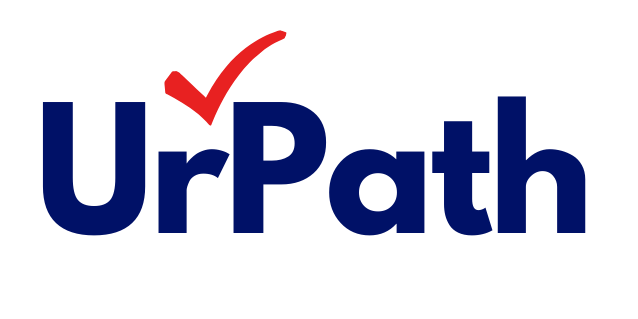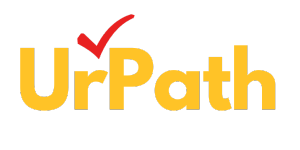The Critical Role of International Student Recruitment Agencies in Boosting Enrollment
Hayoung Kim • November 21, 2024
Book Your Free Initial Consultation Today
Unlocking Global Potential: Strategies for International Student Recruitment

In an increasingly competitive global market, universities and colleges are striving to grow their international student populations. For decision-makers like vice provosts, provosts, presidents, vice presidents, and directors of recruitment, understanding how to effectively recruit international students is not just a priority—it’s a necessity
This blog outlines why working with reputable international student recruitment agencies is essential, highlights best practices for building and maintaining strong relationships with them, and explores strategies to stay competitive in a challenging recruitment landscape.
Why International Recruitment Agencies Are Key Partners
For many international students and their families, recruitment agencies are the first and most critical point of contact with your institution. These agencies bridge the gap between families unfamiliar with the U.S. education system and the universities looking to enroll international students. They provide critical information on admission processes, program offerings, and even local community details, which parents often rely on when helping their children choose an institution.
Parents, particularly those of minor students, play a significant role in deciding where their child will study. Because they may not speak English fluently or fully understand the nuances of the U.S. education system, families often turn to agencies for guidance. If an agency prioritizes your institution in its recommendations, it can significantly influence a family’s decision. However, for this to happen, maintaining a strong, reliable relationship with the agency is crucial.
Best Practices for Managing Agency Relationships
Work Only With Reputable Agencies
Not all agencies operate with integrity. Before partnering, conduct due diligence to ensure the agency represents your institution honestly and does not exploit students. Agencies should have a track record of ethical practices and be focused on student success.
In my personal experience, I saw firsthand how working with dishonest agencies can negatively impact both students and an institution’s reputation. I cannot mention the specific names of the organizations or institutions I worked for at the time due to confidentiality. However, during that period, I dealt with a student from Indonesia whose agent had provided her with false information about her program of study. The agent had misled the student about the program she was entering, and upon arrival in the U.S., the student discovered she had been signed up for a completely different program.
This misrepresentation caused immense frustration for the student, leading her to transfer out of the institution after her first semester. The agency had not only damaged the student’s trust but also caused harm to the institution’s reputation. The agent had admitted to lying because they didn’t know how to correctly fill out applications for the program the student actually wanted. It was easier for them to send the student to the institution I was working for at the time.
Following this incident, we made the decision to stop working with the agent to protect the institution's reputation and ensure students' rights were prioritized. Working with agencies that are honest and transparent is critical. Sweet-talking students into decisions that serve the agency’s convenience rather than the student’s needs only leads to poor representation and frustration.
Evaluate Your Agency Partnerships
Before signing contracts, ensure your agency partners understand and value your institution’s mission. An agency that cares about students’ interests and accurately represents your institution is far more likely to foster successful, long-term relationships.
Also, it’s important to note that some agencies prioritize their own financial incentives over student interests. For example, some agencies work with schools that offer the highest commission rates, regardless of whether those schools align with a student’s needs.
In my personal experience, I witnessed this firsthand during a trip to the southern part of China. Due to confidentiality and an NDA I signed, I cannot disclose the company I was working for or the agency's name. However, during a meeting with an agency owner, he began the discussion by presenting a binder filled with commission rates from various institutions. He started our meeting by asking, “How much commission are you offering me?” before I could respond, he flipped through the binder and stated, “Your organization pays X. I know that. But I am in this business to make money. By sending my students to this other institution, I make X more per student. This adds up to X more money per year. Do you understand? Unless you can offer me more commission, I would like to dismiss you from this meeting.”
When I attempted to explain the value of the education and the support our institution offered to students, he showed no interest, stating that I was wasting his time. The meeting ended abruptly, and I left the office. While I cannot say this agency was not reputable—they may very well be—I walked away questioning whether my institution should work with an agency that prioritizes profits over student needs.
This experience raises a fundamental question: Does your institution want to partner with agencies that prioritize financial incentives over integrity? While institutions offering high commissions may be excellent in their own right, your university must decide whether to engage with agencies that push students toward institutions based solely on commission rates rather than what’s best for the students.
Direct Student Engagement Through Roadshows and Trade Shows
Another powerful strategy for international recruitment is participating in roadshows or international education trade shows, where you can meet students and their families directly. Many large agencies organize their own roadshows or trade shows, inviting partner universities to showcase their programs. While participation typically involves fees, the return on investment can be substantial.
I’ve had the privilege of participating in several roadshows with Oh! Study and UKEAS (now merged with IDP). These events were not only highly effective but also incredibly well-organized. These agencies conducted extensive in-country marketing to attract potential students and their families, then coordinated multi-city tours in regions like Taiwan, traveling to Taipei, Taichung, Tainan, and Kaohsiung.
The agencies handled most of the logistics, ensuring a smooth and productive experience for participating universities. They even provided interpreters for institutions that needed language assistance, further enhancing communication with prospective students and their families. Traveling as part of a group also provided a safe and structured way to experience student recruitment in different countries while gaining valuable cultural insights.
The Importance of Timely and Accurate Communication
Agencies face significant challenges in managing students, parents, and universities. Slow responses or inaccurate information from institutions can damage your reputation and jeopardize your relationships with agencies. To avoid this:
- Respond Quickly: Aim to reply to inquiries within 24–48 business hours, especially for urgent matters.
- Provide Accurate Information: Miscommunication about admission terms, scholarships, or I-20s can harm not only your reputation but also the agency’s.
Agencies must deliver excellent customer service to remain competitive in their local markets. If your institution fails to provide timely, accurate answers, agencies may choose to prioritize other partners that are more responsive.
Building and Maintaining Strong Relationships with Agencies
- Stay Engaged Through Webinars and Updates: Hosting regular webinars and training sessions keeps agencies informed about your institution’s programs, updates, and promotional opportunities. However, avoid overwhelming them with excessive communication—monthly or quarterly updates are sufficient.
- Foster Personal Connections: Meetings, dinners, or social gatherings during recruitment trips help build rapport and ensure your institution stays top of mind for agencies.
- Invest in Cultural Sensitivity: Understanding the unique needs and preferences of students and parents from different cultures can strengthen your agency relationships and improve your recruitment outcomes.
Networking Through Conferences and Events
If you’re looking to establish relationships with agencies or sign contracts, attending industry-leading events and conferences is an excellent starting point. Reputable organizations like The PIE News, ICEF, and NAFSA host events that gather institutions and agencies to foster collaboration and discuss trends in international education.
- The PIE News Events: These events bring together institutions and agencies to discuss the latest developments in the international education sector. They are a valuable platform for networking and staying informed.
- ICEF Conferences: As a regular attendee, I can attest to the benefits of these events. They gather institutions of all levels—including K-12 schools, universities, graduate programs, and language schools—and agencies for one-on-one speed meetings. These conferences facilitate relationship-building and allow institutions to showcase their programs.
- NAFSA: Known as one of the largest international education events globally, NAFSA is a must-attend for institutions seeking to expand their international reach.
These conferences are ideal for fostering relationships, learning about market trends, and connecting with agencies that align with your institution’s goals.
Consultation: How UrPath Can Help
By strategically partnering with reputable international student recruitment agencies and leveraging industry events, your institution can attract top-tier international students and achieve its enrollment goals.
At UrPath, we take the time to understand your institution as if it were our own. We learn your values, mission, and goals to hand-select reputable agencies that align with your vision. Whether you need help establishing initial connections or attending conferences and events like ICEF and NAFSA on your behalf, we can represent your institution with integrity and professionalism.
Would you like to explore how UrPath can help your institution optimize its international student recruitment efforts?
Schedule a consultation to learn more about UrPath's services.
Got Any Questions?

Entering the U.S. education market can unlock transformative growth for EdTech companies—but it requires more than just a great product. To truly resonate with U.S. institutions, decision-makers, and students, foreign EdTech firms must understand the landscape, build trust, and execute a strategic, localized approach. Here are the essential steps to building a strong U.S. market strategy—and how we can help you every step of the way. 1. Understand the U.S. Education Ecosystem The U.S. education system is complex and decentralized, with thousands of independent decision-makers across K–12 districts, higher education institutions, and public agencies. It’s critical to understand how funding works, who holds purchasing power, and what challenges institutions are trying to solve. We help you navigate this landscape by providing market insights and identifying the right entry points for your solution. 2. Tailor Your Messaging for the U.S. Audience What works in one market may fall flat in another. U.S. educators and institutions care deeply about outcomes, alignment with curriculum standards, ease of implementation, and student impact. Your marketing materials, demo content, and success stories must speak directly to these concerns. Our team works with you to localize your messaging, refine your value proposition, and ensure your brand connects with the right stakeholders. 3. Build Early Trust Through Field Marketing Participating in local conferences, school district events, or university expos is a great way to meet decision-makers and showcase your commitment to the market. Being physically present helps establish trust—especially in a relationship-driven environment like education. We support your field marketing efforts with planning, outreach, and on-the-ground execution. 4. Establish Strategic Partnerships Collaborating with the right partners—whether it’s a local distributor, a university department, or a state-run initiative—can accelerate your growth. These relationships open doors to pilot programs, case studies, and future expansion. Through our network, we introduce you to key institutional contacts and help you form partnerships aligned with your mission. 5. Commit to Long-Term Engagement Success in the U.S. market rarely happens overnight. It requires persistence, follow-up, and a willingness to listen, learn, and adapt. Schools and universities want to know you’ll be there for the long run. We help you build a U.S. presence with sustained marketing support, strategic planning, and relationship-building that lasts. Ready to Grow in the U.S.? If you're an international EdTech company ready to connect with the U.S. market in a meaningful way, we’re here to help. Our U.S. Strategy Support service is designed to guide you through every stage—from market entry to long-term success. Let’s explore what’s possible—together.

South Korea is a global leader in education and technology, with strong public investment in lifelong learning, digital upskilling, and future workforce development. For EdTech companies looking to expand, Korea presents a unique opportunity—but only for those who are ready to approach it with insight and intention. Entering this market requires far more than translating your content or launching a local version of your platform. Success demands a deep understanding of Korea’s education culture, government priorities, and the trust-based relationships that drive decision-making. That’s where our Korea Strategy Support comes in. Deep Market Insight for Real Growth We help you understand Korea’s education landscape from the inside out—so you can enter with clarity, not guesswork. This includes: How public education is structured across national, regional, and local levels Who the real decision-makers are in institutions and government What current challenges and trends are shaping the market How EdTech solutions are evaluated and adopted in both K–12 and higher education Our goal is to give you the strategic insight needed to make smart decisions and avoid costly missteps. We Connect You to the Right People We don’t just share knowledge—we open doors. Over the years, we’ve built trusted relationships with Korean universities, vocational schools, lifelong learning centers, and regional government agencies. We’ll help you: Identify the right institutional or public-sector audiences Facilitate introductions and support outreach efforts Position your offering to meet local goals and cultural expectations Form lasting partnerships built on shared educational values Whether you're looking to launch a pilot, form a licensing agreement, or scale in a specific region, we tailor the strategy around your mission and Korea’s needs. Strategy That’s Built on Trust In Korea, reputation and relationships are everything. We guide you on how to align your brand and messaging with local expectations—helping you build credibility, understand the timing of government cycles, and prepare materials that resonate with institutional leaders. With our insight and guidance, you're not just entering a new market—you’re building a meaningful presence. Let’s Explore Korea Together Korea is more than a strategic opportunity—it’s a chance to make a real impact in a country that deeply values education and innovation. We’re here to help you approach it the right way. If you’re ready to explore what’s possible, we’re ready to guide you.

Unlock the full potential of webinars as a versatile tool in your B2B marketing strategy. From showcasing your product to launching and discussing new eBooks or whitepapers, sharing thought leadership insights, and highlighting customer success stories, webinars offer endless opportunities. Whether you’re looking to drive brand awareness, engage your target audience, or generate qualified leads, this step-by-step guide—based on my extensive experience—will help you create impactful and effective webinars that deliver results.

